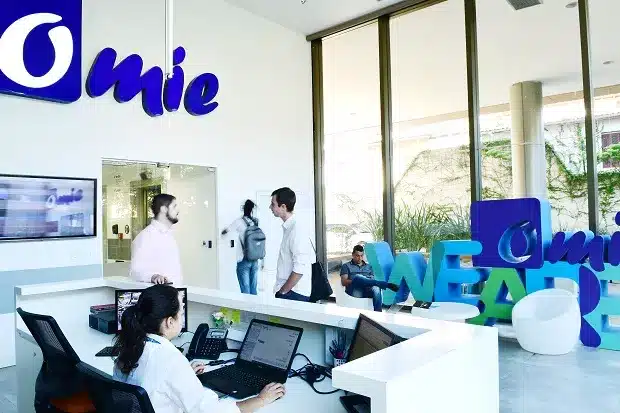What is ERP?
Understand what ERP is and how it can help automate tasks, integrate data and support the management of your business.

O Enterprise Resource Planning (ERP) is a system that helps manage the entire company with agility and intelligence.
It is a technological solution that covers a range of services to serve the different areas of the business, with tools for automating routine tasks, storing data, issuing reports and other functionalities.
In addition to streamlining operations, increasing organization and productivity, the system integrates data and information from all sectors, facilitating data access and management.
If you still don't know ERP and want to understand how it all works, check out the content we've prepared for you below.
Learn also: What is Net Worth and how to calculate it.
What is ERP?
ERP stands for "Enterprise Resource Planning". It is the name given to business management software resources that automate processes, store data and unify the visualization of results.
Each department needs a tool to carry out routine tasks and generate reports. With ERP it is possible to obtain a set of interconnected services that unifies information and facilitates the flow of work between different sectors of the company.
Because of this, it is also called the organization's system of record. In addition to centralizing the workflow, it allows for the alignment of information and communication between all areas, which greatly facilitates the decision-making process.
In this way, instead of hiring several separate pieces of software, the company uses ERP to concentrate its information in an integrated and intelligent way.
Find out: What is Defis and how to declare it?
How did the ERP system come about?
To get to the technological tools available today, the first steps were taken back in the 1950s.
At the time, the first mainstream was used to automate stock control. However, until then it was a very expensive, slow and inaccessible solution.
In 1970, management systems began to evolve with Black and Decker's Material Requirement Planning (MRP). With the arrival of computer networks in the 1980s, it became possible to integrate company departments using software.
In the 1990s, with the advance of networks and computer architecture, large companies began to adopt control and management tools.
Gradually, the concept evolved and was perfected until it reached today's ERP systems, with a very refined management level, cloud operations, customizable tools and segment specialists.
See also: B2B vs. B2C: Understand the differences between the two business models.
How does an ERP system work?
The main aim of an ERP system is to intelligently organize all the information generated by a business. To do this, it uses a robust structure, capable of helping all departments with functionalities that meet their routine tasks such as financial control, employee management, supply management, etc.
As it is a robust system, it is possible for the company to add the modules that work best in its work routine and that help management in a more complete way.
From there, the system can run in all departments, making the internal flow of information efficient.
The main features of ERP systems are:
- Quick and easy integration of all areas of the company;
- Flexibility to adapt to the most diverse types of business;
- Automated 100% processes;
- Single internal information flow;
- Real-time data monitoring;
- Decision-making support.
CLM Controller Tip: Do you want to know how to calculate employees' vacations?
How important is ERP?
ERP can be described as a company's central nervous system. It offers automation, integration and intelligence for the assertive and efficient execution of all daily business operations.
Its solutions cover all areas, such as finance, HR, services, production, supply chain, procurement and others.
This way, all sectors benefit. Finance with faster account closing, sales with sales order management, logistics with accurate customer data, management with quick access to information and so on.
ERP is gaining more and more importance in the market and the adhesion rate is proof of this. According to G2 data, the global ERP software market is expected to reach US $78.40 billion by 2026, with annual growth of 10.2% from 2019 to 2026.
See also: Presumed Profit Income Tax, learn how to calculate!
Advantages of ERP for companies
By hiring an ERP system, the company is able to adapt it to the needs of the business, in other words, it is tailored to each company. It even allows the integration of subsidiaries, making communication between companies faster and more effective.
In addition, the ERP will provide advantages such as:
- Optimization and automation of key business processes, increasing organization and productivity;
- Creating a single source of information with rapid responses, eliminating information silos and generating far-reaching insights;
- Fast reporting on the business to improve performance in real time;
- Reduction of risks and errors;
- Simplification of the company's IT operations;
- More agility to consult information and make decisions.
[DOWNLOAD NOW]: Do you want a spreadsheet to perform the Presumed Profit calculation?
Omie System functionalities
CLM Controller is a partner of Omie and is a specialist in the systems supplied by the company.
Omie's ERP is divided into six modules that serve businesses from end to end (CRM, Sales and NF-s, Finance, Accountant's Panel, Stock and Production, Services and NFS-e).
Companies can customize the solutions to meet their demands and make full use of what the ERP has to offer.
Want to know more? Contact our service team.

